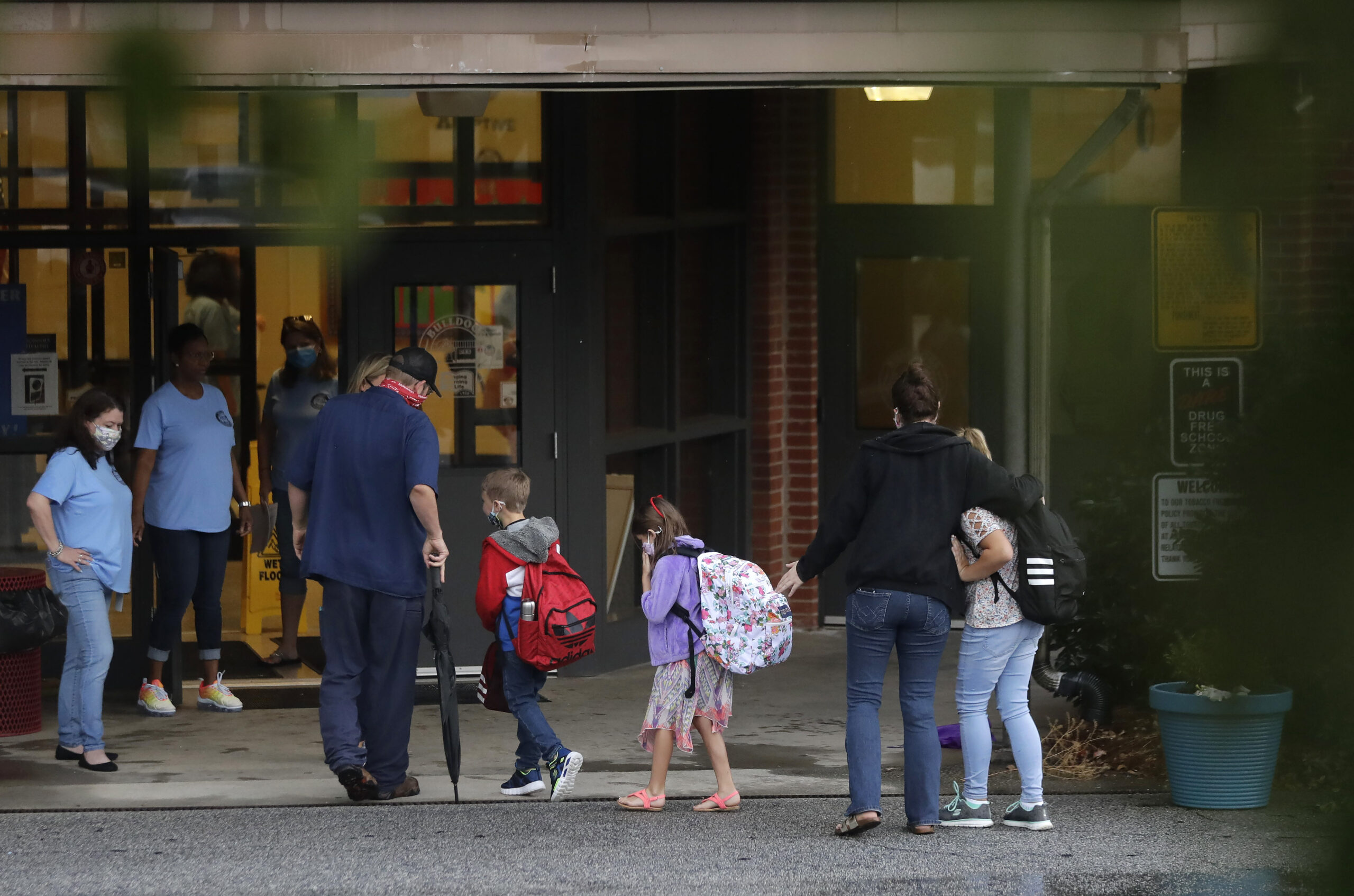Georgia’s largest teachers group told Gov. Brian Kemp that teachers should be able to decide whether to return to school without being quarantined for COVID-19 exposure if the governor decides to allow that.
But the group said Kemp should make sure rapid coronavirus testing is available to teachers. It also wants districts to provide more paid leave, publish coronavirus testing results and let educators with high-risk health conditions work from home.
The Professional Association of Georgia Educators sent recommendations to Kemp on Wednesday, a week after the Republican governor acknowledged that he was considering declaring teachers as “critical infrastructure workers.” Such a designation would mean that teachers would be exempted from the legal requirement that they quarantine for 14 days after COVID-19 exposure.
The non-union group is still expressing skepticism about the move, in the face of a heavy push by local school superintendents.
“All of us would prefer that schools could open, stay open, and return to their place as a vital center of community life. However, ignoring the high probability of continued community spread through elimination of quarantine protocols ensures prolonged health and safety issues for all Georgians,” Executive Director Craig Harper wrote in an accompanying letter.
In a survey earlier this month by the Georgia School Superintendents Association, 139 superintendents favored designating teachers as critical, while 12 opposed it. They fear the large numbers of exposures among teachers could force schools to shut down in-person learning. For example, Gordon Central High School in northwest Georgia closed in-person instruction for two weeks after 14 teachers were quarantined.
The U.S. Department of Homeland Security on Aug. 18 issued its fourth version of who counts as a critical infrastructure worker, for the first time saying teachers should be on the list alongside nurses, police officers and meat packers.
Kemp could declare teachers as critical statewide, or at least allow individual districts to make the declaration, as Tennessee has done. A lawyer for Kemp told the Floyd County district that it couldn’t make the designation unless Kemp or the Department of Public Health acts, but 56,000-student Forsyth County and Calhoun say they have designated teachers as critical even without Kemp’s permission.
Kemp spokeswoman Candice Broce said Thursday that the issue is still under review. He could make a decision in coming days.
Other teacher groups remain more strongly opposed.
“Designating educators as essential workers further decreases the safety we’re trying to have in our buildings,” said Lisa Morgan, president of the Georgia Association of Educators, a branch of the National Education Association, the nation’s largest teachers union.
Morgan said she fears the goal of school leaders has shifted from keeping students and teachers safe to keeping school buildings open.
PAGE proposes that only teachers who want to should be allowed to return in less than 14 days, but Morgan said she fears administrators would pressure teachers to return.
PAGE says that those who choose to return should quarantine for three days and follow Centers for Disease Control and Prevention rules for critical infrastructure employees, or should have access to rapid daily testing, “allowing for greater assurance that abbreviated quarantine protocols adequately protect others from exposure.”
The association also called for paid emergency leave for educators who are exposed and must quarantine beyond the two weeks granted by the federal government.
Some districts, like Fulton County, have given their employees more paid leave, but most have not, telling workers to instead use their regular paid leave. In Calhoun, the Rome News-Tribune reported that Calhoun Superintendent Michele Taylor said she made the designation after teachers voiced concerns about being forced to use personal sick leave if forced to quarantine for multiple two-week periods while never showing symptoms.
PAGE also called for districts to report confirmed infections, suspected infections and exposures on a regular basis.









